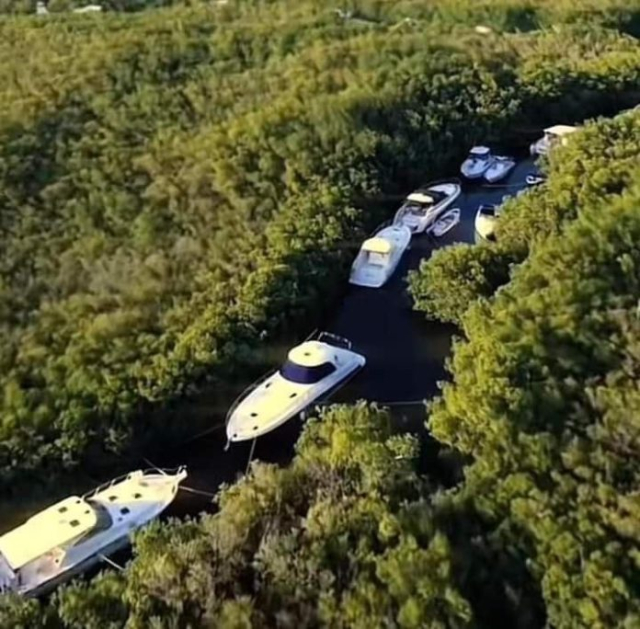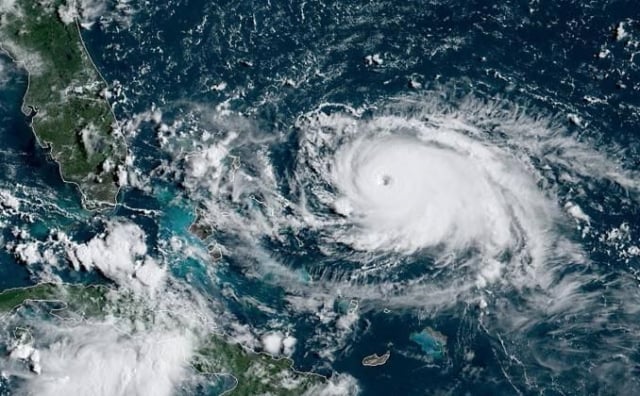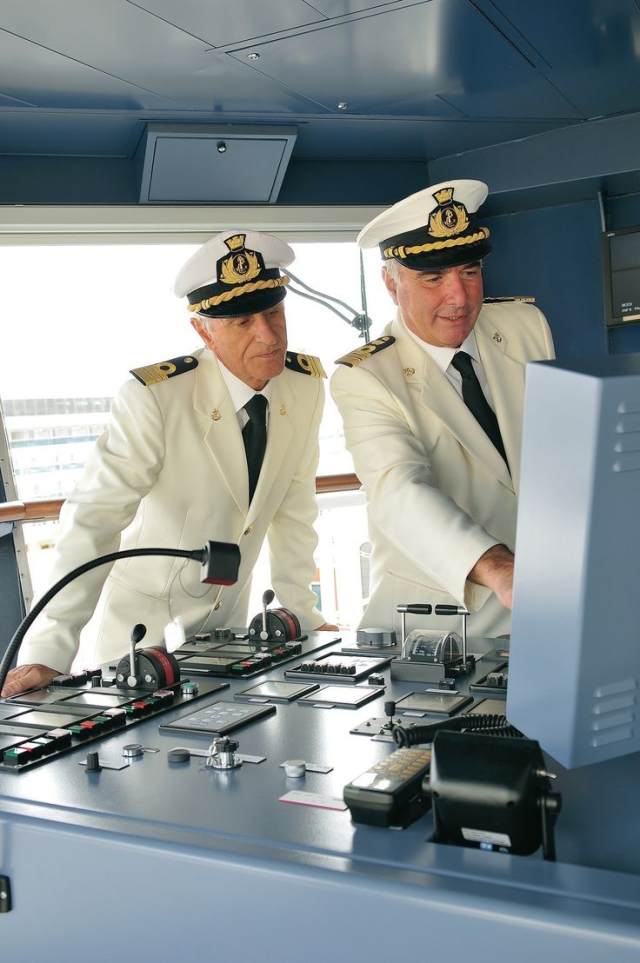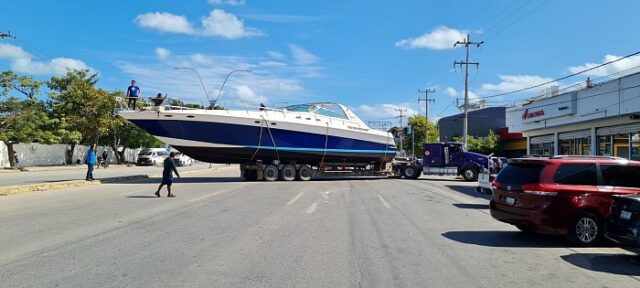Hurricanes pose a significant threat to recreational vessels due to their ability to generate extremely adverse weather conditions. Hurricane winds can reach speeds of over 250 km/h , causing gigantic waves and very strong ocean currents. These conditions not only make navigation difficult, but can also cause severe damage to vessels , such as breaking moorings, capsizes, and collisions with other structures or floating objects. Additionally, reduced visibility and heavy rain further complicate ship maneuvering and control during these events.
Another critical aspect is the impact of storm surges , which are sudden and significant increases in sea level induced by hurricanes. These surges can flood ports, marinas and coastal areas , causing many vessels to drift or crash into docks and other infrastructure. Port infrastructure may also be damaged, complicating post-hurricane rescue and repair efforts . This affects not only the safety of vessels and their occupants, but also generates a considerable economic impact on the maritime tourism and recreation industry. 
You may also be interested in: Safety recommendations at sea
It is essential to know the best options for protecting vessels during hurricane seasons or on alert due to their presence. Protected marinas and ports are one of the safest options to protect boats during a hurricane . Marinas equipped with protective structures such as breakwaters, seawalls and robust docks are designed to offer additional defense against strong waves and winds. These locations are ideal because they provide a controlled environment and access to emergency services if necessary . Protected natural harbors, such as bays and estuaries , may also be suitable, provided seabed conditions allow safe anchorage and there is no risk of flooding . Another effective option is to move the boat to inland rivers and canals . These bodies of water, far from the coast and protected from the open sea, offer additional shelter from the onslaught of the hurricane. In some regions, mangroves can provide natural protection thanks to their ability to buffer wind and waves , making them an ideal place to moor boats. However, it is essential to ensure that the area is not prone to flash flooding that could endanger the vessel.
If possible and there is enough time, the safest option is to take the boat out of the water and store it in a boathouse or shipyard . These locations are equipped to handle vessels out of the water and can offer superior protection during hurricanes . Secure the boat with suitable supports and tie it firmly to the ground to prevent displacement caused by strong winds. If it is not possible to remove the boat from the water, floating docks designed to rise and fall with the water level can provide some protection, especially in areas subject to storm surge.
You may also be interested in: Nautical applications
Recommendations during hurricanes

- Constant weather monitoring: Stay informed about the evolution of the hurricane through official and reliable sources. Forecasts and early warnings can provide the time needed to make sound decisions.
- Evacuate early: If evacuation notices are issued, follow the guidance of local authorities without delay. Personal safety must be the priority.
- Prepare an emergency plan: Have a clear action plan for yourself and your crew, including evacuation routes, meeting points, and an emergency kit with basic supplies.
- Constant communication: Maintain constant communication with port authorities and other boaters. Use VHF radios to get real-time updates and to call for help if necessary.
- Check and maintain safety equipment: Make sure all safety equipment, such as life jackets, flares, and fire extinguishers, is in good condition and easily accessible.
- Documentation and insurance: Keep all boat documentation in a safe place and review your insurance policy to understand coverage and steps to take in the event of damage.
You may also be interested in: Recommendations to avoid accidents at sea
Protect Vessels to minimize damage

- Secure mooring: Secure your boat with additional moorings and check that all ropes are in good condition. Use longer mooring lines and cross the lines for added stability.
- Remove and secure loose equipment: Remove and stow sails, dinghies, awnings and any loose equipment that could be blown away by the wind. Close and seal all hatches and portholes.
- Seek adequate shelter: If possible, move the boat to a safe location out of the reach of the hurricane, such as an inland harbor or a designated storm mooring. If this is not possible, try to anchor in a protected bay away from other boats.
- Raise the boat: If you have access to a boat lift or slipway, consider removing the boat from the water and securing it on land. This can significantly reduce the risk of damage from waves and storm surge.
- Protection of motors and electrical systems: Disconnect the batteries and ensure that the motors are well protected from water ingress. Sealing fuel inlets and other systems can prevent costly damage.
- Additional reinforcements: Place reinforcements in the most vulnerable areas of the boat, such as windows and doors. Use wooden boards or specific hurricane protectors.
- Post-hurricane inspection: After the hurricane, perform a detailed inspection of the boat to identify and repair any damage as soon as possible. Also check the condition of the mooring and other safety equipment.
You may also be interested in: Maritime implements for going sailing
Emergency contacts in case of accidents
- Coast Guard: The Coast Guard is the primary authority for maritime emergencies. Use the VHF radio on channel 16 (international distress frequency) to establish communication and request help. You can also contact them by phone if you have access to a line.
- Port Authorities: If you are in a port or marina, contact your local port authorities. They can coordinate rescue efforts and provide vital information about safe shelters and evacuation procedures.
- Local Emergency Services: In case of medical emergencies or situations that require immediate intervention, call the local emergency number (such as 911 in many countries).
- Maritime Radio Stations: Use maritime radio stations to send an emergency message. They can relay your situation to the appropriate authorities and coordinate a response.
- Maritime Rescue Services: In some countries, there are organizations dedicated to maritime rescue that can assist in the recovery and repair of damaged vessels.
- Insurers: Contact your insurance company as soon as possible to report the damage and begin the claim process. Make sure you have all the necessary documentation and photos of the damage.
- Salvage and towing services: If your boat needs to be towed or salvaged, contact marine salvage services. They have the equipment and experience necessary to handle these situations safely.
We invite you to take a look at other articles: https://yate.co/es/blog




